Learn
The Columbian Exchange
The Columbian Exchange was the transatlantic trade of crops, technology, and culture between the Americas and Europe, Africa, and Asia.
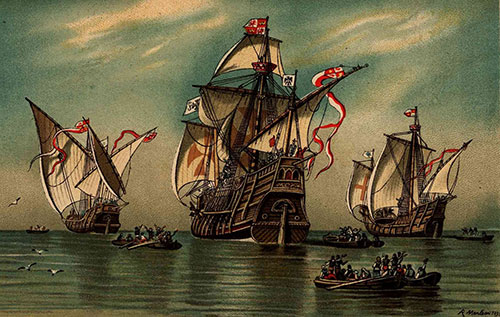
Exchange of Goods
When Europeans came to the Americas, they brought some things that were new to the Native Americans, such as wheat, cows, horses, firearms, wheels, laws, languages, and customs.
Europeans returning from the Americas brought back many new items to Europe, like peanuts, pineapples, tomatoes, potatoes, cocoa, and tobacco.
Goods moving from the New World to the Old World
- Food: corn, potatoes, beans, cocoa beans
- Precious metals: gold, silver
- Tobacco
Goods moving from the Old World to the New World
- Food: wheat, sugar, rice, coffee beans
- Livestock: horses, cows, pigs
- Diseases: smallpox, measles, influenza, typhus
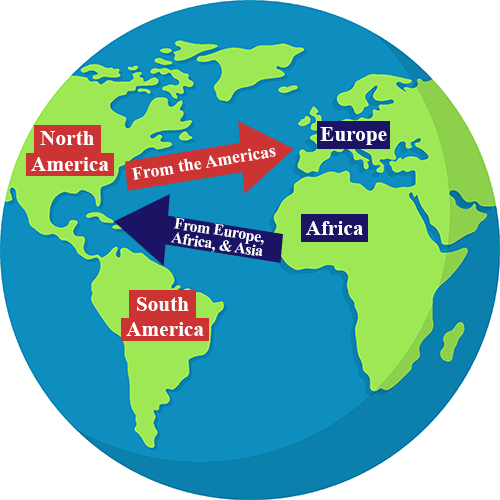
Here's a more comprehensive list:
Items traded from the Americas to Europe, Africa, and Asia
- Tobacco
- Sweet Potato
- Avocado
- Peppers
- Peanut
- Potato
- Tomato
- Corn
- Beans
- Vanilla
- Pumpkin
- Turkey
- Squash
- Pineapple
Items traded from Europe, Africa and Asia to the Americas
- Produce:
- Turnip
- Peach
- Olive
- Banana
- Honeybees
- Sugar Cane
- Citrus Fruits
- Coffee Bean
- Grape
- Pear
- Onion
- Disease:
- Smallpox
- Influenza
- Typhus
- Measles
- Malaria
- Diphtheria
- Whooping Cough
- Livestock:
- Cattle
- Sheep
- Pig
- Horse
- Grains:
- Wheat
- Rice
- Barley
- Oats
Native Americans Devastated
Any benefits brought to the Native Americans by the arrival of the Europeans were far outweighed by the misery that came with them. Native Americans were used as forced labor before slaves were brought from Africa.
Furthermore, diseases (such as smallpox, typhus, and measles) spread rapidly, devastating entire Native American populations.
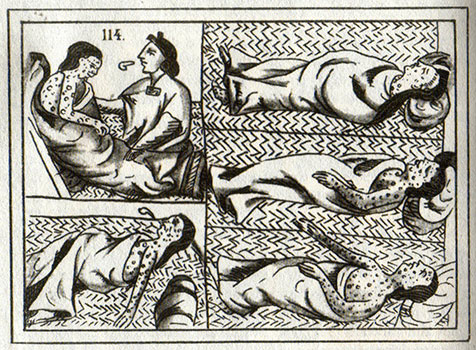
Triangular Trade
The triangular trade was trade that occurred between the Americas, Europe, and Africa.
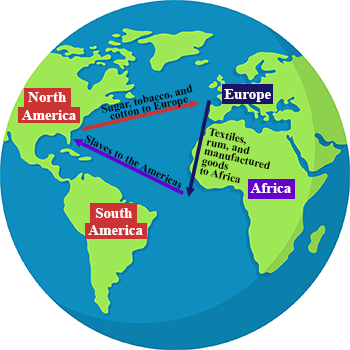
Plantations and Enslaved Africans
Plantations were large farms that produced crops for sale (also known as "cash crops"). Plantations required a large numbers of workers to labor long hours.
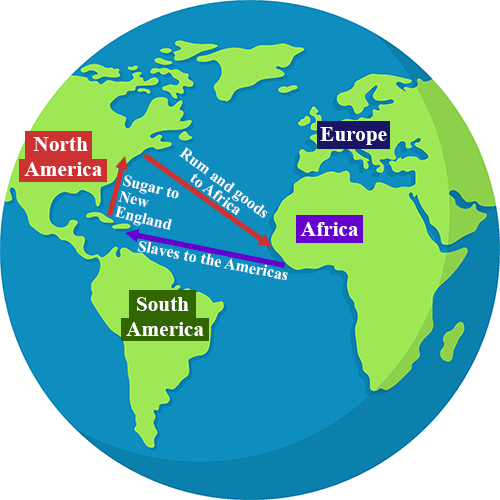
The first enslaved Africans arrived in the Americas in 1517. The Europeans constructed a cruel system to supply slaves, who were regarded as property, to the Americas.
The Middle Passage
As part of the triangular trade system, the Middle Passage was the terrifying journey enslaved Africans made across the ocean in the hull of a slave ship. They were involuntarily taken from their homeland and forced into slavery in the Americas.
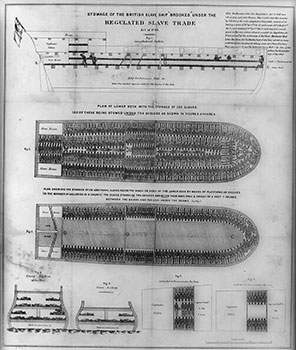
This is a close-up of the previous picture. Can you see how close the people were on the slave ships? It was a miserable trip from Africa and many did not survive.
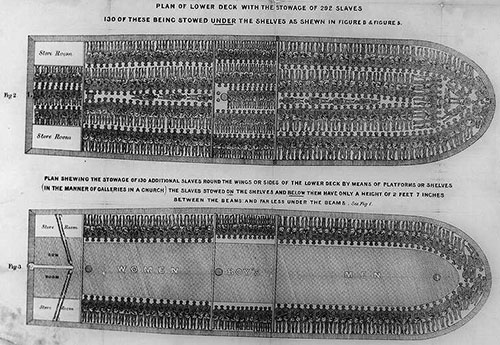
The Causes:
- A desire to accumulate wealth
- A rebirth of a spirit of inquiry
- Improved seafaring technology
Led To:
- Europeans exploring the Americas
Which Caused:
- The exchange of goods and ideas between Europe and the Americas
- The devastation of Native American populations by European diseases
- The participation of European countries in the West African slave trade